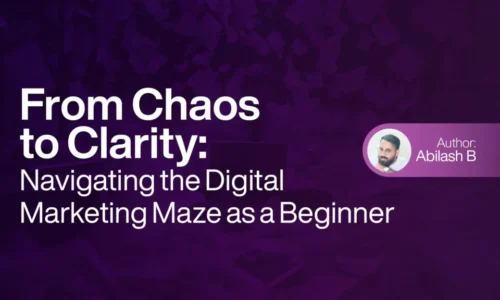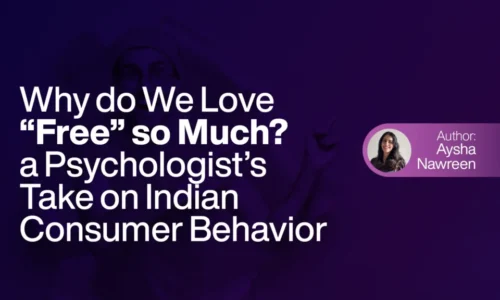Revolutionizing B2B Marketing: The Power of Automation
In the ever-evolving landscape of B2B marketing, staying ahead of the curve is not just an advantage—it’s a necessity. Enter marketing automation: a game-changing approach that’s reshaping how businesses connect with their clients, streamline their operations, and drive unprecedented growth. In this comprehensive guide, we’ll dive deep into the world of B2B marketing automation, exploring its benefits, strategies, and real-world applications that are transforming the industry.
Table of Contents
Understanding B2B Marketing Automation
At its core, B2B marketing automation leverages sophisticated software to streamline and automate repetitive marketing tasks and workflows. Think of it as having a tireless digital assistant that works around the clock, nurturing leads, personalizing communications, analyzing data, and optimizing your marketing efforts. But it’s more than just a tool—it’s a strategic approach that allows businesses to scale their marketing efforts efficiently and effectively.
Key Components of Marketing Automation
- Customer Relationship Management (CRM) Integration: Seamlessly connecting your marketing efforts with your sales pipeline.
- Email Marketing Automation: Sending targeted, personalized emails based on user behavior and preferences.
- Lead Scoring and Management: Automatically ranking and categorizing leads based on their engagement and potential value.
- Content Management: Organizing and delivering relevant content across various channels.
- Analytics and Reporting: Providing in-depth insights into campaign performance and ROI.
The Importance of Marketing Automation in B2B
The B2B sales cycle is typically longer and more complex than B2C, involving multiple decision-makers and touchpoints. This is where marketing automation shines, offering several critical advantages:
- Efficiency Boost: By automating routine tasks like email follow-ups, social media posting, and lead qualification, your marketing team can focus on high-level strategy and creative tasks. This not only saves time but also reduces the risk of human error in repetitive processes.
- Personalization at Scale: In the B2B world, personalization is key. Automation allows you to tailor messages to thousands of prospects simultaneously, based on their industry, role, behavior, and stage in the buying journey. This level of personalization was once impossible at scale but is now a reality.
- Data-Driven Decision Making: Marketing automation platforms provide a wealth of data on customer behavior, campaign performance, and ROI. This enables marketers to make informed decisions, refine their strategies, and allocate resources more effectively.
- Improved ROI: According to a study by Nucleus Research, companies using marketing automation see a 14.5% increase in sales productivity and a 12.2% reduction in marketing overhead. The ability to do more with less translates directly to improved return on investment.
- Enhanced Lead Nurturing: B2B buyers often require multiple touchpoints before making a decision. Automation allows for consistent, timely, and relevant communication throughout the buyer’s journey, nurturing leads until they’re sales-ready.
- Alignment of Sales and Marketing: By providing a unified platform for both teams, marketing automation bridges the gap between sales and marketing, ensuring a smoother handoff of qualified leads and better overall collaboration.
Key Automation Strategies for B2B Success
Now that we understand the importance of marketing automation, let’s explore some key strategies that B2B companies can implement to maximize its potential:
Lead Nurturing Workflows
Set up sophisticated email workflows triggered by specific actions or timeframes. For example:
- Welcome series for new subscribers
- Re-engagement campaigns for dormant leads
- Product-specific information drips based on expressed interests
- Follow-up sequences after webinar attendance or whitepaper downloads
Content Personalization
Deliver hyper-relevant content based on user behavior, preferences, and stage in the buying journey. This could include:
- Industry-specific case studies
- Role-based solution guides
- Personalized product recommendations
- Custom landing pages tailored to the visitor’s previous interactions
Lead Scoring and Qualification
Implement a robust lead scoring system that automatically ranks prospects based on their engagement, demographic information, and behavioral data. This helps prioritize sales efforts and ensures that only the most qualified leads are passed to the sales team.
Account-Based Marketing (ABM) Automation
For B2B companies targeting specific high-value accounts, automation can power personalized ABM campaigns:
- Coordinated multi-channel outreach to key decision-makers
- Tailored content delivery based on account-specific pain points
- Automated tracking of engagement across the entire account
Customer Onboarding and Retention
Automation isn’t just for acquiring new customers—it’s equally valuable for onboarding and retaining existing ones:
- Automated welcome sequences for new clients
- Regular check-ins and satisfaction surveys
- Proactive renewal reminders and upsell opportunities
Predictive Analytics and AI
Leverage advanced features of marketing automation platforms to:
- Predict which leads are most likely to convert
- Recommend the best next action for each prospect
- Optimize send times for email campaigns based on individual user behavior
Multi-Channel Coordination
Ensure a consistent experience across all touchpoints by automating and coordinating efforts across:
- Email marketing
- Social media campaigns
- Paid advertising
- Website personalization
- Direct mail initiatives
Real-World Success Stories
To illustrate the transformative power of marketing automation in B2B, let’s look at some real-world examples:
Case Study 1: Software Company Streamlines Lead Nurturing
A mid-sized B2B software company implemented an automated lead nurturing campaign to address their long and complex sales cycle. By setting up a series of targeted email workflows based on prospect behavior and interests, they achieved remarkable results:
- Sales cycle shortened by 23%
- Conversion rates increased by 20%
- 35% reduction in cost per lead
The key to their success was delivering the right content at the right time, automatically guiding prospects through the buyer’s journey with minimal manual intervention.
Case Study 2: Manufacturing Firm Enhances ABM Efforts
A global manufacturing company used marketing automation to supercharge their account-based marketing strategy. By integrating their CRM data with their marketing automation platform, they created highly personalized campaigns for their top 100 target accounts:
- 45% increase in engagement from target accounts
- 28% boost in pipeline value
- 15% improvement in deal close rates
The automation allowed them to scale their personalized outreach efforts, ensuring consistent touchpoints across multiple decision-makers within each account.
Case Study 3: Professional Services Firm Improves Client Retention
A B2B professional services firm implemented an automated customer onboarding and retention program. This included:
- Personalized welcome series for new clients
- Automated check-ins at key milestones
- Proactive renewal reminders and upsell suggestions based on usage data
The results were impressive:
- 30% increase in client satisfaction scores
- 25% reduction in churn rate
- 18% boost in upsell revenue
By automating these crucial touchpoints, the firm ensured consistent, timely communication without overburdening their account management team.
Overcoming Challenges in B2B Marketing Automation
While the benefits of marketing automation are clear, implementing it successfully can come with challenges. Here are some common hurdles and how to overcome them:
- Data Quality Issues: The effectiveness of automation relies heavily on clean, accurate data. Regularly audit and clean your database, and implement data validation processes to maintain quality.
- Lack of Strategy: Automation without a clear strategy can lead to wasted resources. Start with well-defined goals and buyer personas, and map out your ideal customer journey before implementing automation.
- Over-Automation: While automation is powerful, it’s crucial to maintain a human touch. Balance automated communications with personalized, human interactions, especially for high-value prospects and clients.
- Integration Complexities: Ensuring seamless integration between your CRM, marketing automation platform, and other tools can be challenging. Work with IT or consider hiring a specialist to ensure proper setup and data flow.
- Skills Gap: Marketing automation requires a blend of marketing, technical, and analytical skills. Invest in training for your team or consider bringing in specialists to bridge any skills gaps.
Getting Started with B2B Marketing Automation
Ready to harness the power of marketing automation for your B2B business? Here’s a step-by-step guide to get you started:
- Audit Your Current Process: Identify repetitive tasks and inefficiencies in your current marketing and sales processes.
- Define Clear Goals: Establish specific, measurable objectives for your automation efforts, aligned with your overall business goals.
- Choose the Right Platform: Research and select a marketing automation platform that aligns with your needs, budget, and existing tech stack.
- Start Small: Begin with one or two key processes to automate, such as lead nurturing or welcome sequences. Gradually expand as you see success.
- Invest in Content: Effective automation relies on high-quality, relevant content. Develop a content strategy that addresses various stages of the buyer’s journey.
- Train Your Team: Ensure your marketing and sales teams are well-versed in using the automation platform and understanding its capabilities.
- Monitor and Optimize: Regularly review your automation workflows, A/B test different approaches, and refine based on performance data.
- Maintain the Human Touch: Remember that automation should enhance, not replace, human interactions. Use automation to identify opportunities for personal outreach.
The Future of B2B Marketing Automation
As we look ahead, the future of B2B marketing automation is bright and full of potential. Emerging trends to watch include:
- AI and Machine Learning: Expect more sophisticated predictive analytics and AI-driven personalization.
- Hyper-Personalization: Advances in data processing will enable even more granular, real-time personalization.
- Voice and Conversational Marketing: Integration with voice assistants and chatbots will create new automation opportunities.
- Enhanced Privacy Compliance: Automation tools will evolve to help businesses navigate complex data privacy regulations.
Conclusion: Embracing the Automation Revolution
In the competitive world of B2B marketing, automation is no longer a luxury—it’s a necessity. By embracing marketing automation, B2B companies can create more meaningful connections with their audience, streamline their operations, and drive significant growth. It’s not just about working smarter; it’s about revolutionizing how we approach B2B marketing in the digital age.
As you embark on your automation journey, remember that the goal is to enhance human efforts, not replace them entirely. The most successful B2B marketing strategies will be those that strike the perfect balance between automated efficiency and genuine human connection.
Are you ready to transform your B2B marketing with the power of automation? The future of marketing is here—and it’s automated, personalized, and more effective than ever before.



